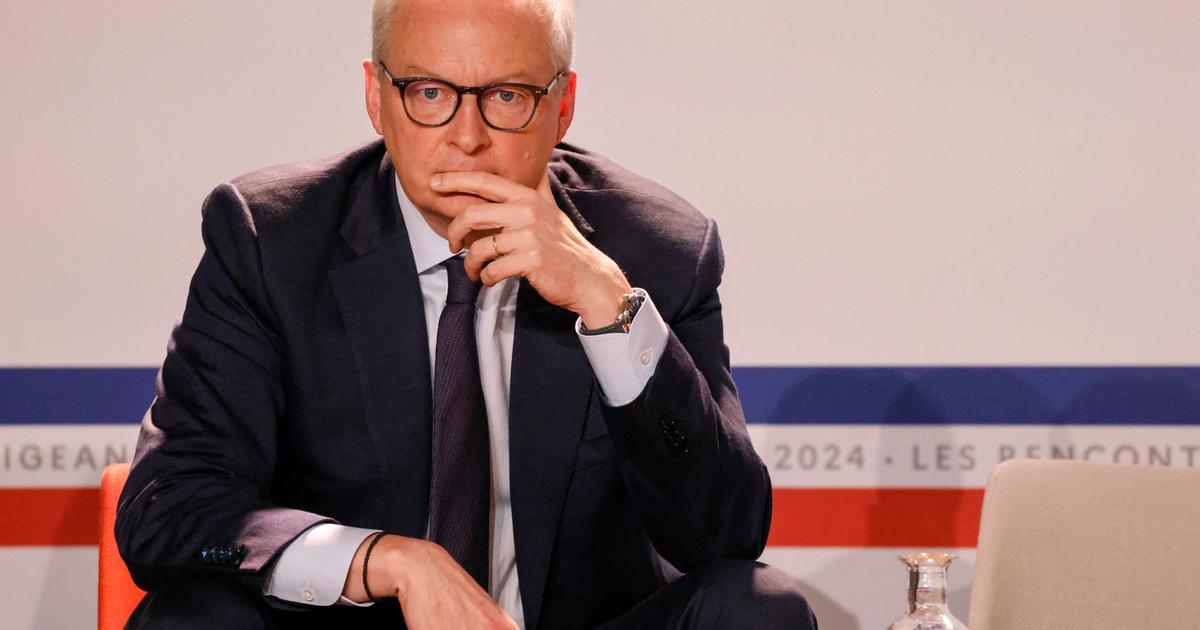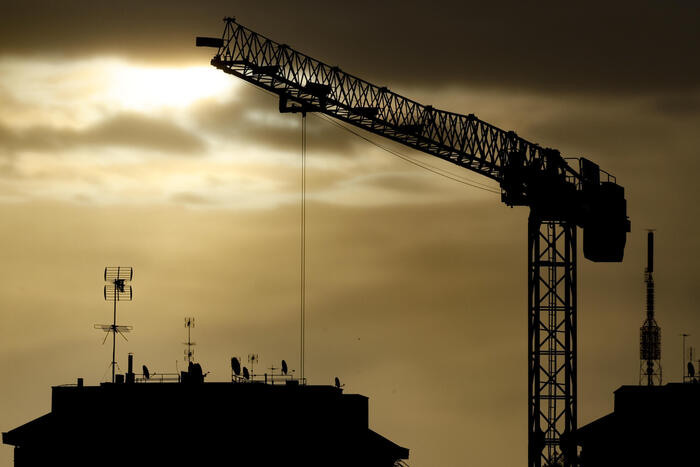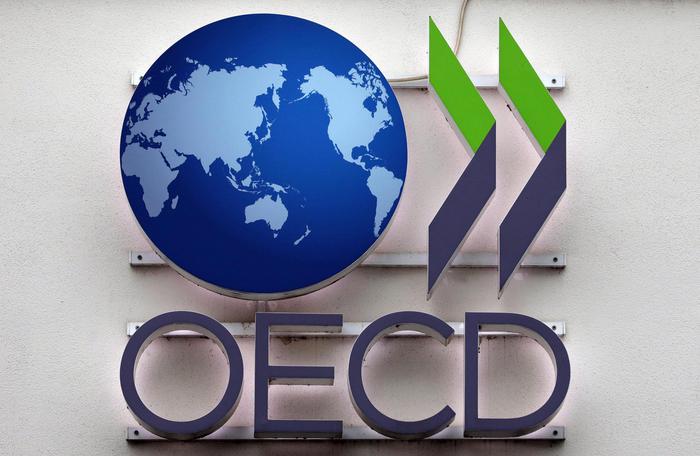Workers watch as a crane lifts a structure at a construction site in Shanghai last Friday ALY SONG (REUTERS)
The Chinese economy grew by 4% in the fourth quarter of 2021, above analyst forecasts (around 3.3%) but at its slowest rate in 18 months, weighed down by factors such as the crisis of the developer Evergrande and its echoes in the rest of the real estate sector, the blackouts in industrial centers, the effects of regulatory measures in the technological, financial and entertainment areas, and new outbreaks of covid.
During the third quarter the expansion of the Gross Domestic Product (GDP) had been 4.9%;
in the last three months of 2020 it reached 6.5%.
It grew by 8.1% in the year
Throughout last year, the economy expanded by 8.1% year-on-year, the highest figure in a decade and also above analyst forecasts (around 7.9%).
But that figure is distorted by the low of the 2020 comparison base (up 2.3%).
In the first quarter of the year the covid pandemic began, the GDP of the world's second power registered a contraction, the first in three decades.
The government's goal for 2021 was to achieve growth of “more than 6%”.
China was the country that first began to recover from the pandemic and the only major world economy to grow in 2020. But the recovery ran out of steam in the second half of 2021, after posting first-quarter year-on-year growth of 18.3 %.
The expansion of the GDP is due, above all, to the growth of foreign trade, where China has registered a surplus of 676,400 million dollars, over 30% more than the previous year.
Exports and imports also increased by around 30% respectively.
Only sales abroad have represented 20.9% of GDP growth, according to the director of the National Statistics Office (ONE), Ning Jizhe, at a press conference to present the new economic figures.
Industrial production grew more than expected, 4.3% in December and 9.6% for the full year, according to official data, while retail sales growth slowed to 1.2% year-on-year (3% if automobiles are excluded), compared to 3.9% in November, reflecting that problems continue on the consumption side, spurred by the restrictions to control covid. In all of 2021, the retail sales sector grew by 12.5%.
According to ONE, throughout 2021 China "sustained a continuous and stable recovery of the national economy and maintained a world leadership position in economic growth and control of the pandemic."
But at the same time, Ning has admitted that the national economy "is under the triple pressure of a contraction in demand, supply problems and weaker expectations."
Interest rate cut
In a sign of these weaker expectations, the People's Bank of China (central) has cut interest rates on its medium-term loans, the first time it has adopted this type of measure since April 2020, in the midst of the pandemic crisis. .
The International Monetary Fund forecasts that the Chinese economy will grow by 5.6% throughout 2022. The World Bank calculates 5.1%, after having revised its figure downwards from an initial 5.4%. "Downside risks to China's economic outlook have increased," the World Bank pointed out this month in its most recent report on the Asian giant, pointing out that new covid outbreaks, including cases of the omicron variant, could lead to “wider and longer lasting” restrictions causing further damage to the economy.
The ING bank calculates in a note that growth for 2021 will be around 5.4%, although that figure “will depend on the covid, the shortage of semiconductors and the relationship between China and the United States.”
“The Government has made clear its objective of a stable economy in 2022. Therefore, we do not expect to see a repetition of the aggressive policies that we saw in the second half of 2021,” says the financial institution.
He does expect pressure on property developers to resolve their debt problems to remain, "which we believe will translate into new M&A activity" for companies with higher liability figures.
“State-owned companies will replace some private companies in this sector,” ING concludes.

/cloudfront-eu-central-1.images.arcpublishing.com/prisa/ZCJBHLPNY2EQYRMGLJNJ54JW5Q.jpg)













